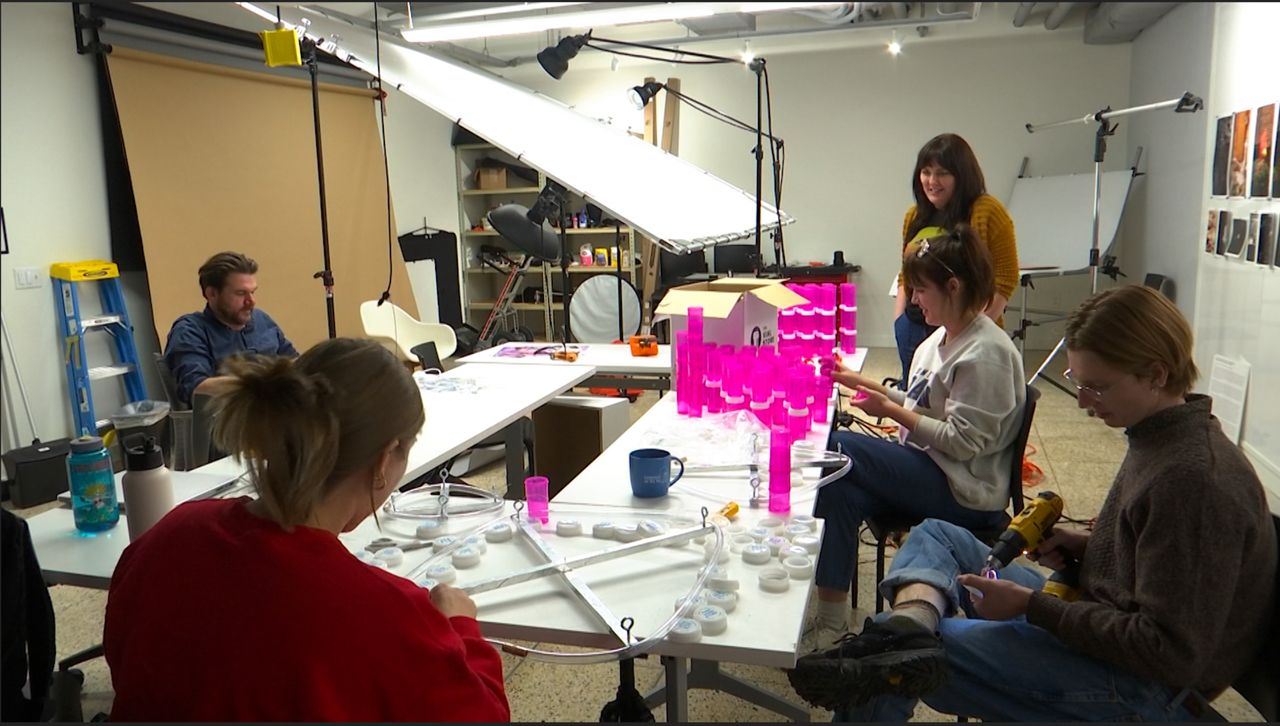DAYTON, Ohio – With a pill bottle chandelier, a candy pharmacy, and a sampling of desserts, the students behind the University of Dayton’s Dinner in the Desert have fixed their focus on sugar.
More than just a way to satisfy your sweet tooth, the annual dinner and art exhibition event raises funds for area food justice initiatives while raising awareness of issues surrounding inequalities in the food system.
In its sixth year, the event developed out of Glenna Jennings’ art and social practice class.

“Social practice really believes in community engagement, and the idea that conversation itself is a form of art,” the associate professor said. “We decided that food was a great way to get people to sit down together, to share a meal to talk about something that they participate in every day.”
In the years since, art students have worked with cooks through the Desert Kitchen Collective to create an interactive event, including an art auction, an empty bowls fundraiser, and a canned goods collection.
“This year, the majority of our funds will go to Unified Power, which is a co-op set up to increase services and opportunities on the west side of Dayton,” Jennings said.
With its theme, “Oh, you think it’s sweet?” the event is focused on the history of sugar and its relationship with health, food access, and labor exploitation. Caleb Snoddy, one of Jennings’ students, spent the semester researching those issues and incorporating them into the poster and ceramic designs for the meal.
“I created a decal highlighting the Atlantic Slave trade in Brazil, served with a Brazilian dessert that has a transnational connection back to Nigeria,” he said.
Much of the research focused on the human rights investigation into Central Romana in the Dominican Republic, one of the largest private sugar producers. Reports of the alleged use of forced labor led the United States to block sugar imports from the company in late November.
“Sugar is found in so many of the products and processed foods we buy, and where we don’t expect it,” Jennings said. “But what people don’t know a lot about is where sugar comes from and its history.”
Jennings and her students hope those who come to Dinner in the Desert will take away a new understanding of the ingredient and what it takes to get it on the table.
The event takes place Friday, Dec. 2 from 6 to 9 p.m. at The Hub in the Dayton Arcade. Last year’s Dinner in the Desert fundraiser raised more than $3,100.



